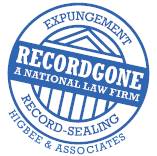California Assembly Bill 1941 is set to go into effect on January 1st, 2019 and with it comes a change in the language of Section 17(b). The change makes more people eligible to seek a reduction of their felony conviction to a misdemeanor conviction. Commonly referred to as “wobblers,” certain criminal convictions can be sentenced as a felony or a misdemeanor conviction. Despite the silly sounding name, this classification has a serious impact on a person’s life depending on which way their offense “wobbles.” Any conviction carries with it a stigma, but it is undisputed that a felony conviction carries with it a higher level of stigma than a misdemeanor conviction. In addition to the more severe stigma, a felony conviction can impact an individual’s rights and privileges, inhibiting their ability to return to being a full member of the community even after paying their societal debt. AB 1941 means more people can enjoy the benefits of the section 17(b) reduction.
The purpose for “wobbler” classifications is to provide some flexibility in sentencing for judges. This provides the judge authority to be more lenient to an individual with less serious circumstances or minimal prior history of criminal activity, whereas if that individual has a history of criminal activity and the crime’s circumstances were especially serious, the judge can then issue a tougher sentence.
AB 1941 amends Section 17(b) by removing the words “without imposition of sentence” from Section 17(b)(3). A four word change may not seem like much, but the impact is not insignificant. The change in the language will allow an applicant who has received a suspended prison sentence to reduce their wobbler conviction to a misdemeanor from a felony, as long as they received a term of probation too. Prior to this law change, if an individual was sentenced to a suspended state prison sentence along with a term of probation, the suspended prison sentence made that individual ineligible for 17(b) reduction relief. This meant that even if someone shaped up after receiving their conviction, was a model probationer, and never triggered the suspended sentence, a judge could not tangibly recognize that rehabilitation with a conviction reduction. With this law change, a judge is provided with the additional authority to recognize rehabilitation with a conviction reduction.
An added benefit of the 17(b) reduction is the ability to restore one’s firearm rights if their prohibition stems from the felony conviction. Those convicted of a felony wobbler lose their firearm rights just as though they were convicted of a “straight” felony, however if the felony wobbler is reduced, then firearm rights are restored in most circumstances because the conviction is now legally classified as a misdemeanor. A 17(b) reduction will not restore firearm rights if the conviction was for an offenses federally defined as “domestic violence,” nor will it affect firearm rights lost as a result of an involuntary mental health hold.
If you are interested in removing the stigma of having a felony conviction on your record, and want to restore all of your rights and privileges, contact us today to discuss pursuing a 17(b) reduction. We can file for a reduction AND expungement simultaneously in most circumstances. Even if you have previously received a 1203.4 dismissal (California expungement), you may be eligible to file for the reduction. The granting of a 17(b) reduction request is not automatic and requires a showing that it would be in the interest of justice. We have already helped thousands of people reduce their conviction, let us help you too. Contact our intake specialists at 877-573-7273 and find more information here.




One Response to California Makes A Big Impact With Small Change to Section 17(b)